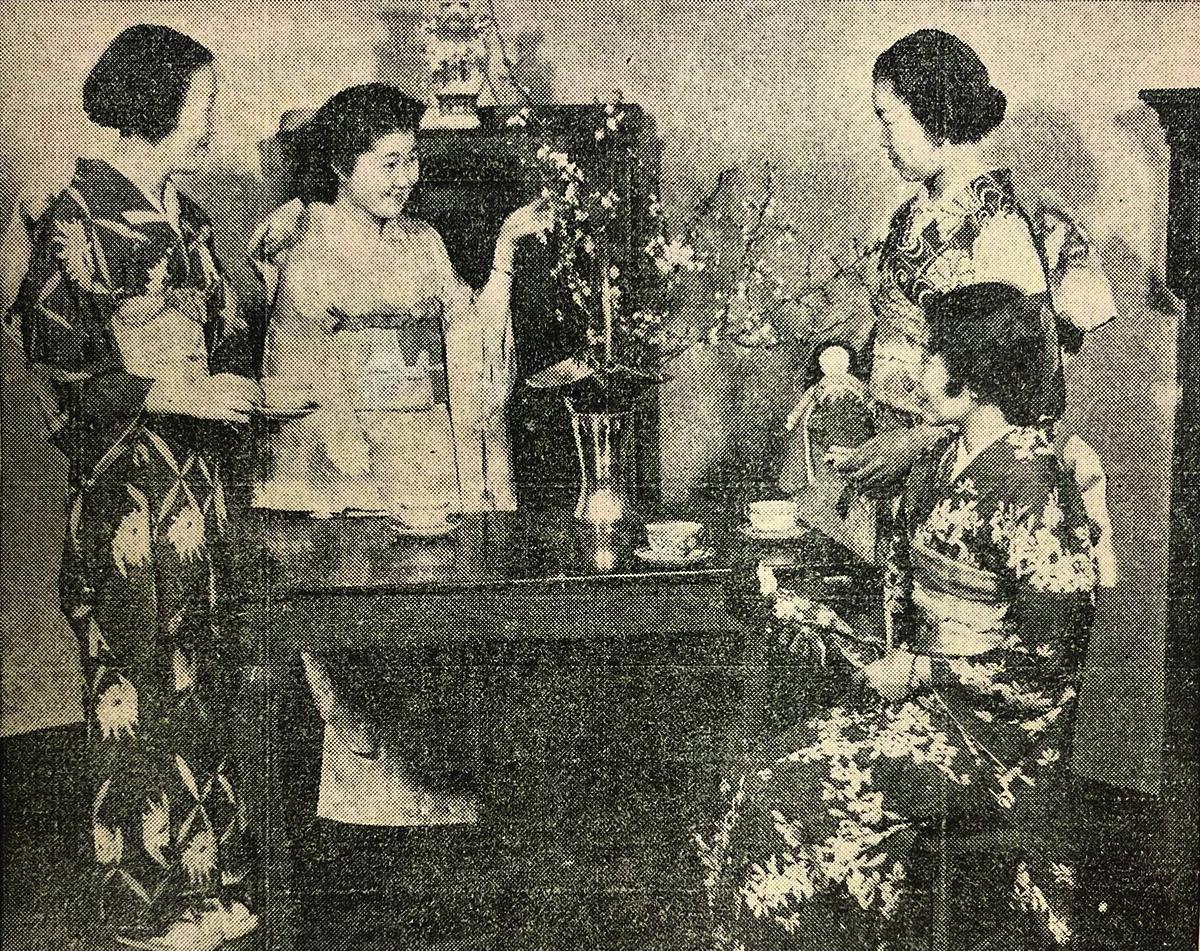
By Olivia G. Wing, PhD Candidate, Department of History
In the late 1930s, Portland’s Chinese Girl Reserves and Japanese Girl Reserves each hosted a variety of fund-raising events to support causes of their choosing. Fundraisers were not unusual for a service organization sponsored by the YWCA. In the late 1930s, however, the Chinese and Japanese Girl Reserves each chose to sponsor seemingly diverging causes: war relief for Chinese refugees and summer camp, respectively. While Chinese American girls chose to signal political solidarity with their families’ homeland, Japanese Americans used their fundraisers to participate in summer camp—a pastime increasingly considered a quintessential experience among American youth. Despite their apparent differences, however, each cause signaled the kind of girlhood citizenship both Chinese and Japanese American girls strove to embody.
My research contextualizes these choices amid the background of Asian American history and the history of American girlhood. By the 1930s, the United States was several decades into the period of Asian Exclusion. Japan’s invasion of China in 1937 marked a turning point in international relations as the US identified Japan as a potential threat and China as a sympathetic nation in an impending global conflict. The late 1930s, therefore, represents a moment in which Chinese Americans’ and Japanese Americans’ perceived perpetual foreignness and assumed ties to their community’s nation of origin held the possibility to grant certain opportunities for the former and posed real threats for the latter. These global events provide context for the stakes of community-facing representation and fundraising that Girl Reserves engaged in.
When Chinese American girls spilled into the streets of Portland to sell paper flowers for Chinese war victims, they participated in a rising trend among American and British girl groups to engage in matters of global relations as future maternal, service-minded, and educated women.1 However, the Chinese Girl Reserves acted not just as representatives of US empire, as other white American Girl Reserves did, but specifically as representatives for their community’s nation of origin. Their fundraising coincides with the history of “bowl of rice” fundraisers for China wartime aid made popular by California and New York Chinatown associations and supported by US politicians in the late 1930s.2 The large-scale parades and banquets that characterized these fund-raisers never materialized in Portland, but the paper flower fundraiser hosted in both Portland and Salem demonstrates that Oregon participated in this transnational humanitarian movement. Furthermore, in Portland it was specifically a girls’ organization that made strides to join this movement. In doing so, the Chinese Girl Reserves demonstrated their simultaneous commitment to American and Chinese American internationalism, as well as modern gender expectations for political engagement, by weighing in on these global events via fundraising.
Meanwhile, the Japanese American Girl Reserves defined dual cultural citizenship by participating in local efforts to make camping more accessible for Portland girls while also representing a Japanese cultural inheritance divorced from Japan’s modern politics. Their most popular fundraiser was a tea where they exhibited Japanese artifacts, performed traditional dance and music, and served guests in kimonos (see photo). These events framed their performance as odes to the Japan of their first-generation ancestors, eschewing their connections with a Japan of the present and using their performance of culture in service of their future in the US via American youth culture. In Portland, and across the US, the interwar period marked the increased availability of the American summer camp for girls; prior to this period, camps were largely reserved for white boys from urban areas.3 In Portland this transformation was expedited by the YWCA’s purchase in 1937 of a designated summer camp for girls, Camp Westwind. The Japanese Girl Reserves’ tea party fundraised for equipment to furnish the newly purchased camp with facilities, boating dock, and canoes—amenities that all participating Portland Girl Reserves, including Chinese and Japanese American Girl Reserves, enjoyed for a 10-day summer retreat in the summer of 1938.4 Japanese American girls’ fund-raising signaled an investment in this local project, as well as the American cultural phenomenon of the summer camp, at a time in which their community’s loyalty came under increasing scrutiny by West Coast communities and the US government.
Girls had limited means by which to affect large-scale change, but via youth organizations, they could show their local communities the values they intended to champion as women. This small window into Portland fundraisers in 1937–1938 illustrates that Chinese and Japanese American girls pursued different avenues—both, however, anchored by global politics and cultural movements at home. Their fundraising causes demonstrate the precarious place of Asian immigrants during times of global upheaval, as well as the actions girls took to chart their futures as citizens in the pre-war era.
—Olivia Wing received a 2024 CSWS Graduate Writing Completion Fellowship for this project.
NOTES
1 Alexander, Kristine. Guiding Modern Girls: Girlhood, Empire, and Internationalism in the 1920s and 1930s (Vancouver: University of British Columbia Press, 2017).
2 Leong, Karen and Judy Tzu-Chun Wu. “Filling the Rice Bowls of China: Staging Humanitarian Relief During the Sino-Japanese War,” in Chinese Americans and the Politics of Race and Culture, ed. Sucheng Chen and Madeline Hsu (Philadelphia: Temple University Press, 2008), 130–52.
3 Paris, Leslie. Children’s Nature: The Rise of the American Summer Camp (New York: New York University Press, 2008).
4 “Camp Dates Announced for Girl Reserves,” Girl Reserves Journal, April 25, 1938. Girl Reserves published dates for the summer season following a drive to fund equipment and member attendance. Portland’s Chinese and Japanese Girl Reserves participated and ranked in the fundraising competition.

